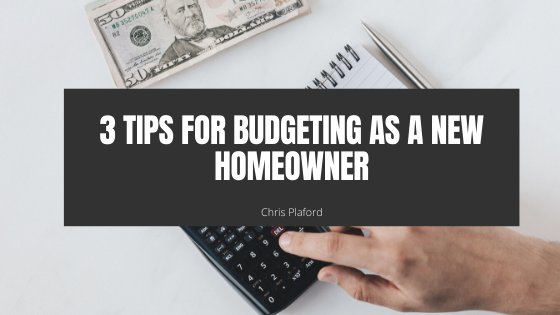When you’re becoming a new homeowner, your primary focus is often on the upfront costs you need to take care of in the immediate future. These include things like moving costs, your down payment, and closing costs. New homeowners often feel that they’ll be in good shape once they get past these expenses. However, that’s only true if you’ve also budgeted appropriately for the new regular costs that come with homeownership.
It’s important that you are fully aware of and planning for these expenses before they come up. The regular expenses of homeownership may come as an overwhelming and troubling shock.
Here are three key areas you need to plan for.
Save For Property Taxes and Homeowner’s Insurance
You are likely paying for these expenses once a year, so it’s easy to forget about them. To stay on top of this, figure out what the costs will be for the year ahead of time. Divide that number by twelve. Now, you know how much you need to save each month, so you’ll be ready for these bills when they inevitably come around. Tucking that money into its own high-yield savings account is the best way to keep it ready for you.
Prepare for Unplanned Expenses
You will have maintenance and repair expenses. These are part of the typical costs of owning a home, though you may not always know well in advance what repairs will happen for the year. So how do you plan for the unexpected?
Just as you would keep an emergency fund to prepare for life’s unexpected expenses, like needing a new tire on your car or taking your pet to the veterinarian, have a maintenance fund saved for your home. Experts recommend that this maintenance fund be kept at about one percent of your home’s total value. However, if your home is older, that fund may need to be closer to four percent of your home’s value.
Review Your Budget Regularly
As you get used to owning your home, you’ll get a better feel for what your expenses genuinely are. While planning for homeownership costs is essential, you won’t know your actual numbers until you start living them.
In the beginning, plan to do a serious review of your monthly budget and make adjustments every three months. Later on, you can see if doing this less frequently feels manageable for you, but start more regularly, so you are on top of things. Put a reminder in your calendar.
Inevitably, the costs of homeownership may feel overwhelming sometimes. Do your best to plan and regularly review, and you’ll avoid some of the common pitfalls and stresses new homeowners are prone to.
